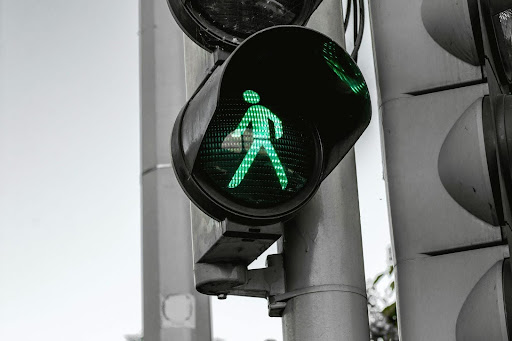If you’re considering applying for Social Security disability insurance, you could benefit from reviewing your work history. Since SSDI benefits are only available to those who have paid into the system via payroll taxes, your work history must reflect that you’ve done so.
Other requirements can factor into your SSDI eligibility other than working. SSDI law professionals recommend working with a Social Security attorney in Los Angeles if you’re unsure about your eligibility.
Social Security Disability Eligibility
You can be eligible to receive SSDI benefits if you:
- Have a qualified disability that deters you from working
- Have accumulated a certain number of work credits
SSDI benefits qualifications require the you:
- Worked in occupations covered by Social Security
- Have a medical condition that meets Social Security’s strict definition of disability
Social Security Disability Definition
Disability under Social Security is only for total disability. Social Security programs assume that working families can help provide for those with temporary disabilities, and there are other programs like workers’ compensation. This means no benefits are payable for partial or short-term disability.
Social Security defines disability as the following:
- You cannot work or engage in substantial gainful activity (SGA) because of your medical condition
- You cannot do work you did previously because of your disability
- You are unable to adjust to other work because of your medical status
- Your condition has lasted or is expected to last for at least one year
- Your condition may result in death
Work History and SSDI Eligibility
Your work history is part of the Social Security Administration’s formula for calculating work credits. Work credits determine the appropriate amount of SSDI benefits you’re eligible to receive.
The SSA uses the following criteria to calculate work credits:
- A worker’s medical records proving their disability
- The number of years they have worked
Work history plays a significant role in determining eligibility for SSDI benefits. Workers are also required to prove that they have paid Social Security taxes from their income before qualifying for disability advantages.
Work History Reports
If you’re applying for Social Security Disability Insurance benefits, then you or your legal team are required to fill out a work history report. This report attempts to prove that you have accumulated a sufficient number of work credits to qualify for SSDI benefits.
The total number of work credits you can earn per year is based on your income. However, the SSA regulates that you cannot receive more than four work credits in a single year. Generally, an applicant over the age of 31 needs a total of 20 work credits, within the past 15 years, to be eligible for SSDI benefits.
There are exceptions to the general rule for applicants under the age of 31, and there are other criteria that may factor into your eligibility decision. That’s why Social Security specialists recommend working with a trained SSDI attorney in your LA community.
Certain career types can affect an applicant’s SSDI benefit eligibility. If you are self-employed or work overseas, read on for the special eligibility requirements to receive Social Security disability benefits.
Self-Employment Eligibility for SSDI Benefits
If you are applying for SSDI benefits as a self-employed individual, you must be able to demonstrate a record of SSDI contributions. This requires you to show proof that you have consistently paid the appropriate SSDI taxes. Trained SSDI attorneys can help you recover the necessary documentation to demonstrate you’ve paid.
Overseas Employment for SSDI Benefits
The Totalization Agreement, outlined by the SSA, protects American workers from dual taxation. The SSA ensures that your work credits earned overseas are taken into consideration when determining a worker’s eligibility for SSDI.
However, SSDI advisors recommend consulting with an experienced Los Angeles Social Security disability attorney to determine whether your overseas employment will be counted toward your work history when pursuing United States disability benefits.
Federal Employment for SSDI Benefits
The Windfall Elimination Provision of 1984 states that federal employees hired before 1984 will have fewer SSDI benefits. Before then, federal employees did not have Social Security taxes withheld from their salary. However, all federal employees who were hired after 1983 will have coverage for their earned work credits since federal employees began paying into SSDI.
Qualifying Disabilities
Once you have enough work credits to qualify for disability benefits, the SSA uses a step-by-step process to determine if you have a qualifying disability.
The questions that can determine if you’re eligible for SSDI benefits are:
Are You Working?
The SSA uses earnings guidelines to evaluate if you’re engaged in substantial gainful activity. If you are working and your earnings average more than $1,470 ($2,460 if you’re blind) per month, then you cannot be considered to have a qualifying disability.
If you are not working or not performing SGA, the Disability Determination Services (DDS) office will decide if your medical condition satisfies their requirements for disability benefits.
Is Your Condition “Severe”?
Your condition is considered severe when it significantly limits your ability to do basic work-related activities like:
- Lifting
- Standing
- Walking
- Sitting
- Remembering
If you haven’t experienced the above for at least 12 months, DDS will likely conclude that you do not have a qualifying disability. However, if your condition does interrupt your basic work-related activities, then ask the next question.
Is Your Condition Found in the List of Disabling Conditions?
The DDS keeps a list of medical conditions they consider severe enough to prevent a person from doing SGA. If your condition is not on their list, they must decide if your condition is as severe as those listed. If it is, you have a qualifying disability. If not, consider the next question.
Can You Perform the Work You Previously Did?
If your medical impairment(s) prevent you from performing any of your past work then you likely qualify for disability. If not, and you’re unable to do other work because of your impairment, then you can be considered disabled according to the DDS.
The DDS will consider your medical conditions, age, education, past work experience, and any transferable skills you may have when determining your eligibility. If you can’t do other work, they decide if you qualify for disability benefits. If you can do other work, your claim will be denied.
Special Circumstances That Affect SSDI Eligibility
Generally, those who receive disability benefits qualify by meeting the work and disability requirements described above. However, the following situations can affect your SSDI benefits status:
- You’re blind or have low vision
- You’re the surviving spouse or relative of a worker who dies
- You’re or have a child with a disability
- You’re a wounded veteran
If you do not meet the legal definition of blindness, you could still qualify for SSDI advantages. This can be the case when your vision problems are combined with other health problems that prevent you from working.
SSDI Benefits
The SSDI pays monthly benefits to those who are unable to work for a year or more because of a disability. Generally, there is a five-month waiting period and they’ll pay your first benefit the sixth full month after the date they find your disability began. Benefits usually continue until you can work again.

























